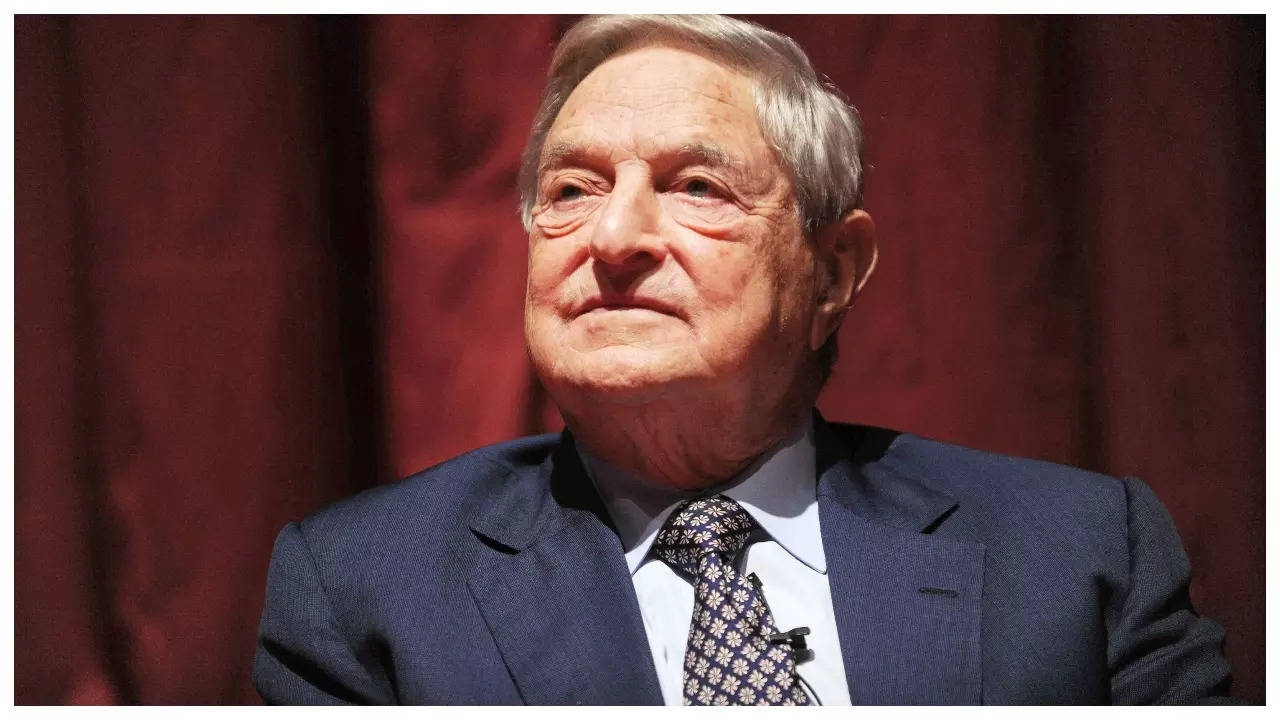NEW DELHI: The Supreme Court on Wednesday discarded as unauthentic a report by India-baiter George Soros-linked Organised Crime and Corruption Reporting Project (OCCRP), which was relied upon by the media to lend credence to Hindenburg Research‘s claim of stock manipulations by Adani Group companies and failure of Sebi to probe the short-seller’s charges.
A bench of Chief Justice DY Chandrachud and Justices JB Pardiwala and Manoj Misra said the petitioners rested their cases solely on inferences drawn from the report by OCCRP, a third party organisation involved in investigative reporting. “The petitioners have made no effort to verify the authenticity of the claims,” the bench said.
On November 24, when the SC concluded hearing arguments from petitioners and Sebi, solicitor general Tushar Mehta had informed the court that Sebi had written to OCCRP to provide documents to substantiate the charges made by it against the Adani Group for the purpose of investigation. However, OCCRP wrote back saying the regulator “can get the same documents we used from an NGO operated by Prashant Bhushan”, he had said.
Writing the judgment, CJI Chandrachud said, “The reliance on newspaper articles or reports by third-party organisations to question a comprehensive investigation by a specialised regulator does not inspire confidence. Such reports by ‘independent’ groups or investigative pieces by newspapers may act as inputs before Sebi or the expert committee. However, they cannot be relied on as conclusive proof of the inadequacy of the investigation by Sebi. Nor, as the petitioners state, can such inputs be regarded as ‘credible evidence’. The veracity of the inputs and their sources must be demonstrated to be unimpeachable. The petitioners cannot assert that an unsubstantiated report in newspapers should have credence over an investigation by a statutory regulator whose investigation has not been cast into doubt based on cogent material or evidence.”
The SC also faulted Bhushan for citing a 2014 letter of the Department of Revenue Intelligence (DRI) to Sebi purportedly alerting about possible stock market manipulations by Adani Group companies through overvaluation of import of power equipment from a UAE-based subsidiary. Bhushan had alleged that Sebi failed to act on the input.
In response, Sebi had informed the SC that DRI, after a thorough investigation, could not establish the charges. The order of the additional director general of DRI was challenged by the customs commissioner before CESTAT, which in November 2022 had dismissed the plea after concluding that allegations of overvaluation were not proved. The CESTAT order was upheld by the SC in March 2023. Faulting the petitioner for re-agitating the same issue, which stood concluded, the bench said, “Therefore, the petitioner’s assertion that Sebi was lackadaisical in its investigations is not borne out from the reference to the letter sent by DRI in 2014.”
Bhushan had also levelled conflict of interest charges against Justice Sapre committee members OP Bhat, KV Kamath and advocate-cum-financial law expert Somasekhar Sundaresan after the committee presented its report to the SC. The allegation against Sundaresan was that he had represented an Adani Group company in 2007, even though in an unconnected case.
A bench of Chief Justice DY Chandrachud and Justices JB Pardiwala and Manoj Misra said the petitioners rested their cases solely on inferences drawn from the report by OCCRP, a third party organisation involved in investigative reporting. “The petitioners have made no effort to verify the authenticity of the claims,” the bench said.
On November 24, when the SC concluded hearing arguments from petitioners and Sebi, solicitor general Tushar Mehta had informed the court that Sebi had written to OCCRP to provide documents to substantiate the charges made by it against the Adani Group for the purpose of investigation. However, OCCRP wrote back saying the regulator “can get the same documents we used from an NGO operated by Prashant Bhushan”, he had said.
Writing the judgment, CJI Chandrachud said, “The reliance on newspaper articles or reports by third-party organisations to question a comprehensive investigation by a specialised regulator does not inspire confidence. Such reports by ‘independent’ groups or investigative pieces by newspapers may act as inputs before Sebi or the expert committee. However, they cannot be relied on as conclusive proof of the inadequacy of the investigation by Sebi. Nor, as the petitioners state, can such inputs be regarded as ‘credible evidence’. The veracity of the inputs and their sources must be demonstrated to be unimpeachable. The petitioners cannot assert that an unsubstantiated report in newspapers should have credence over an investigation by a statutory regulator whose investigation has not been cast into doubt based on cogent material or evidence.”
The SC also faulted Bhushan for citing a 2014 letter of the Department of Revenue Intelligence (DRI) to Sebi purportedly alerting about possible stock market manipulations by Adani Group companies through overvaluation of import of power equipment from a UAE-based subsidiary. Bhushan had alleged that Sebi failed to act on the input.
In response, Sebi had informed the SC that DRI, after a thorough investigation, could not establish the charges. The order of the additional director general of DRI was challenged by the customs commissioner before CESTAT, which in November 2022 had dismissed the plea after concluding that allegations of overvaluation were not proved. The CESTAT order was upheld by the SC in March 2023. Faulting the petitioner for re-agitating the same issue, which stood concluded, the bench said, “Therefore, the petitioner’s assertion that Sebi was lackadaisical in its investigations is not borne out from the reference to the letter sent by DRI in 2014.”
Bhushan had also levelled conflict of interest charges against Justice Sapre committee members OP Bhat, KV Kamath and advocate-cum-financial law expert Somasekhar Sundaresan after the committee presented its report to the SC. The allegation against Sundaresan was that he had represented an Adani Group company in 2007, even though in an unconnected case.
